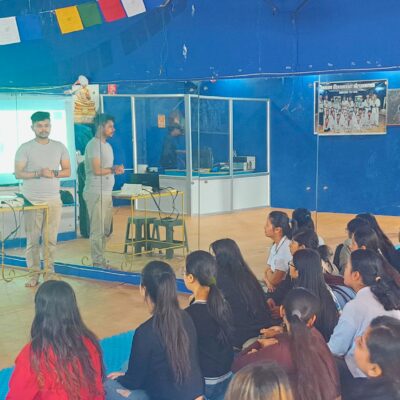How can young people organise to deliver real social change?
This is the question we asked ourselves, at our 7th Youth Power Solidarity Meetup with the Youth Power Panel on Wednesday the 29th July.
We discussed youth movements, past and present, and how we could make our organising, empowering, effective and decentralised.
It was a really fiery and pragmatic discussion. Today’s young leaders are testimony to our power, as young people and they are building on the legacy of their predecessors.
Here’s a snapshot of what was discussed:
“When I first started campaigning, I felt very overwhelmed about getting my voice heard. The first bit of advice I have for you is to believe in yourself, and get involved. You have a right to be there. It feels scary when everyone else seems like an expert and you may worry that you don’t have a right to be there but you are all experts, in your own lived experience. Secondly, I’ve learned that it’s really important to find ways to storytell; whatever you are working on, take pictures, take videos, write blogs and be imaginative about how you are communicating what you are doing to the world. The next thing is to partner with others. We need to work together, and build links between organisations so use networks like this one to find allies to work with who will also promote what you are trying to do.Then finally, I would say that the strongest solutions are created by a range of voices, we need to make sure that those who don’t normally have a platform, have access to that platform. Inclusivity should be at the heart of your work.“
Heather MacKay, campaigner with UKYCC, and the UK representative on the Youth Task Force at the NDC Partnership, Scotland
“Even though we are in a hard context right now, we have found ourselves stronger than before because we were able to adapt. We are more adaptable to changes, this is an asset we have to drive change and respond to scenarios. The millennials movement started with me and my computer. It’s now operating in 13 countries. You can be that person on the forefront, getting in the media, talking to decision makers, you can still do stuff, you can do research, social media, organise events. “
Rosario, Founder Millennials Movement, Peru/USA
“We mimic the methodologies of the government in terms of structure. We have 17 SDG ambassadors that mimic the ministers and we use the 17 SDG goals as our framework to reach out to young people. We recently passed a resolution to make all bills in parliament indicate which SDG they are addressing. It will make it easier to monitor our Government’s progress.”
Dexter, Philippines 2030 Youth Force, Philippines
“We started volunteering in jharkhand, a tribal state and are working on improving people’s livelihoods and providing food rations to vulnerable workers and the elderly. We are also making sure the government machinery works through advocacy. We work in shifts from 11 to 8 in the evening, and while at first, stakeholders didn’t take us seriously. It’s now actually working. We have been able to provide rations as well as livelihood support. “
– Preeti, India
“[Governments] don’t realise what young people are doing in their communities. They should realise that the organisations that young people lead should get the funding they need. Decision makers need to hear from us.”
Harriet, Youth Stop AIDS, UK
“The biggest problem that holds young people back in countries like mine is that they don’t know their rights. “
Magdalena, Restless Development, Tanzania



